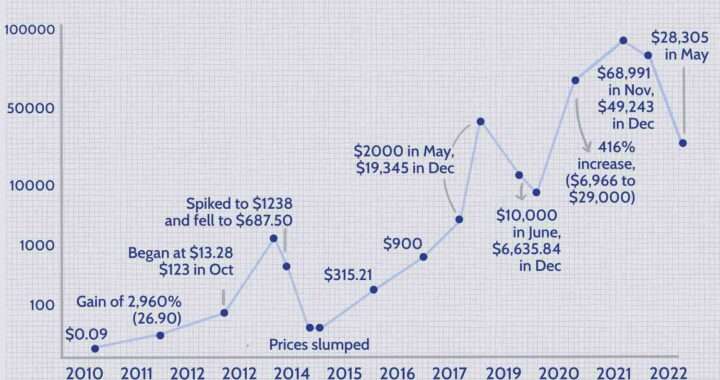Today, the world of finance is rapidly experiencing a digital shift; thus, Cryptocurrency can be considered one of the pioneers that introduced a new investment opportunity. Still, jumping into digital currencies might be challenging, especially when it comes to threats to users’ security.
Therefore, the new entrants in the Crypto market and the old timers must be well acquainted with the right things to do.
What is Cryptocurrency?
Cryptocurrency is a medium of exchange where people buy things and services using digital or virtual currency, which uses cryptography for security. It has no central authority; hence, it is possible that the transactions are less prone to manipulation by institutions.
The first Cryptocurrency created was Bitcoin, which opened doors for other digital currencies distinguished by different features and protection systems.
Potential Security Risks
Depending on how you look at it, Cryptocurrency is wholly or partially decentralized, and it is both an advantage since a single central body does not control it. Still, it also has its setbacks, predominantly cyber theft.
Unlike the old banking systems, virtual currencies are sometimes kept in digital wallets, making them vulnerable to hacking. This, compounded by the fact that transactions are irreversible, means that we should be getting our security right when designing m-commerce.
Also, there is a correlation between remedies and fraudulent schemes. To this date, the Crypto markets are somewhat more liberal, and they are a perfect hunting ground for con artists who can easily manipulate innocent and less informed people who invest in the markets.
Recommendations for Using Computers and the Internet
To mitigate these risks, adhering to best practices in digital security is essential to:
- Use Trusted Wallets: Use genuine hardware or software wallets with protective features since they offer a secure means of storing Cryptocurrency. It is wise to use hardware wallets for large balances as they are not easily susceptible to hacking.
- Enable Two-Factor Authentication (2FA): Always enable two-factor authentication in your Cryptocurrency exchange and storage services. This goes a notch further than just the use of passwords in an attempt to enhance security.
- Keep Software Updated: Controlling- the available wallets, applications, and devices you use for Cryptocurrency transactions should be updated with security patches.
- Beware of Phishing Attempts: Watch out for phishing scams that would try to get any sensitive details from you. Most importantly, web links should always be verified, and individual keys should never be shared.
- Practice Safe Trading: Use dependable exchanges; one should avoid keeping much currency in the exchange just for trading. Funds north of £5,000 should be transferred back to private wallets so as to prevent concentration of large amounts.
- Backup Your Wallet: It is recommended that critical data be backed up on a routine basis and placed in a safe place. This will enable retrieval of most of your funds in the event that the device fails or falls into the wrong hands.
- Educate Yourself: Subscribing to information regarding the new security threats and trends in Cryptocurrencies helps safeguard one’s investments.
Regulation and Future Trends
Over time, the adoption of Cryptocurrency will likely grow, meaning that it will attract regulation, which will gradually reduce security threats. Subtle regulation practices help persuade investors to hold their digital assets with a higher sense of security from possible regulatory hammers.
Consequently, although the usage of digital currencies is a promising development, it comes with a rather great responsibility for personal safety.
Image Source: Adobe Stock
Disclaimer: This article is provided for informational purposes only. It is not offered or intended to be used for legal, tax, investment, financial or other advice.












